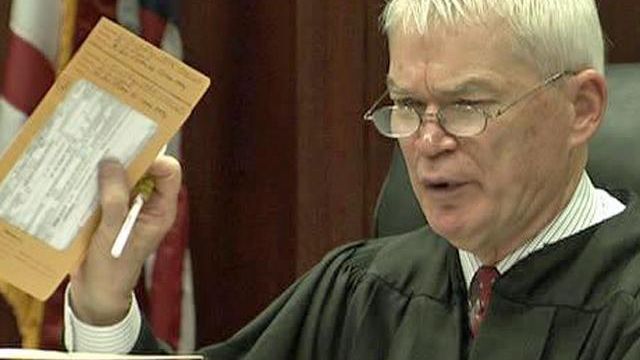DWI cases get clogged in courtrooms
On Monday afternoon, the docket for District Judge James Fullwood's Wake County courtroom contained 175 traffic cases, many for serious drunk driving charges. And the judge had three hours to get through them.
Posted — UpdatedOn Monday afternoon, Judge James Fullwood's courtroom provided an illustration: His docket contained 175 traffic cases, many for serious drunken-driving charges. And he had three hours to get through them.
"It doesn't take a brain surgeon to figure out (that) with 175 cases in 180 minutes, that leaves you about one minute per case," Chief District Judge Robert Rader said. "It's just not possible."
Many cases from those crowded courtrooms get rescheduled, adding more strain to an already crowded court docket, Rader said. On Monday, Fullwood saw one person whose case dated from 2007.
While sometimes the court can complete two or three DWI trials a day, on average, it takes seven months to process a DWI case.
"It makes the cases get older, and as they get older, they're more difficult to process," Wake County District Attorney Colon Willoughby said. "They're more difficult to prosecute. Sometimes, we lose cases because of the age." It is harder, officials say, to schedule police officers, who are usually the only witness to the offense.
In the past fiscal year, Wake County courtrooms saw over 4,000 DWI cases, more than Mecklenberg County. Judges had to leave 269 of them unheard.
"In a perfect world, you open more courtrooms with more judges. But the problem is, we don't have them," Rader said.
Wake has 6.72 judges fewer than needed for its caseload, according to studies by the National Center for State Courts.
The General Assembly approved two more judges for Wake County, but Gov. Bev Perdue has not yet appointed them. The Governor's Highway Safety Program gave a grant to open one courtroom dedicated to hearing DWI cases.
In 2008, the district attorney's office and judges worked with Raleigh police to better schedule officers' court time.
Judicial officials expect the recession will create more caseload problems. During an economic downturn, budgets typically decrease, while the number of cases goes up.
Additionally, population growth will likely keep pressure on DWI courts.
"Folks are trying to help us address the problem, but the growth in this area just overwhelms us sometimes," Willoughby said.
• Credits
Copyright 2024 by Capitol Broadcasting Company. All rights reserved. This material may not be published, broadcast, rewritten or redistributed.






